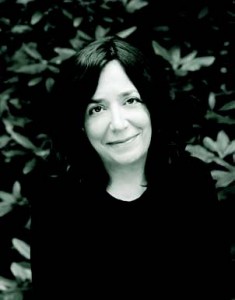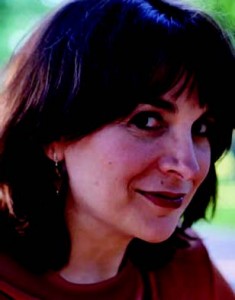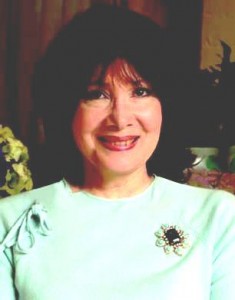Of Faith and Fiction: Frum Novelists Go Mainstream
 A growing number of frum fiction writers are not only entering the mainstream, they are challenging the widely held assumption that realistic depictions of religious Jews don’t sell books.
A growing number of frum fiction writers are not only entering the mainstream, they are challenging the widely held assumption that realistic depictions of religious Jews don’t sell books.
Can Orthodox novelists make it in the mainstream literary market? Apparently they can. In today’s publishing market, where explicit scenes and violence reign, a new crop of talented Orthodox novelists have not only succeeded in creating award-winning fiction, they’ve done so without compromising their religious values.
And, unlike Jewish novelists who have portrayed the world of Orthodoxy in an unflattering and superficial light, these authors reveal the richness, complexity and beauty of religious life. I recently spoke with a number of these literary trailblazers about the challenges they face bringing their craft and their faith to the mainstream market.

Risa Miller published her first novel at the age of forty-nine. Entitled Welcome to Heavenly Heights and published in 2003 by St. Martin’s Press, the novel focuses on the joys and sorrows of a group of families who move from the United States to a settlement in Israel’s West Bank. Her characters confront challenges that range from the shoddy construction of their homes to random Arab violence.
The novel won the prestigious PEN Discovery Award (a “first” for an Orthodox writer) and received high praise from New York Times critic Neil Gordon, who referred to Miller’s prose as “thoughtful, lovely language. . . with the lightest touch. . . poetic, deeply affecting.”
In a New York Times essay, Wendy Shalit, the well-known Orthodox writer, offered generous praise for Miller’s representation of the frum men and women who populate her books.
“Miller doesn’t idealize her characters: they have the same worries and petty jealousies as the rest of us,” she writes. “But she also presents them as people who aspire to transcend their flaws.”
Miller’s second novel, My Before and After Life, published by St. Martin’s Press and released a few months ago, is about a Boston lawyer whose remarried father moves to Israel and embraces Orthodoxy. The lawyer and her sister promptly travel to Israel, determined to change his mind. Pre-publication reviews called the book “witty, intelligent, and quietly powerful,” “heartwarming and thought provoking,” “delightful and surprisingly profound” and “gorgeously written.”
 Risa Miller published her first novel at the age of forty-nine.
Risa Miller published her first novel at the age of forty-nine.
Photo: Bill Miles
A native of Baltimore, Miller discovered her joy for writing as a child and continued honing her talent through college, eventually attending adult education writing classes that led her to pursue an MFA. She currently lives in Brookline, Massachusetts, where she teaches at Emerson College and continues to write.
Miller was raised in a very Jewishly identified home; her mother kept separate dishes, and her family attended an Orthodox shul. But Miller became a follower of the late Bostoner Rebbe, z”tl, and chose to take her observance further.
There are topics Risa Miller won’t write about because they’re not a part of her way of thinking. “I write from a solid, integrated place,” she says.
Sitting across from Miller in a coffee shop near her home, I felt I was sitting in the presence of an author who combines her deep faith with a writer’s solid commitment to her work. She claims that her strong religious values actually help shape her fiction. As for topics that press against her boundaries? Her Torah sensibility keeps her from writing on topics considered taboo. There are topics she says she wouldn’t write about because they’re not a part of her way of thinking. Her beliefs and practices inform her writing.
“I write from a solid, integrated place,” she says.
Does this self-censorship compromise her fiction? She sees the self-censorship she engages in as no different than the forms of self-censorship that other writers engage in. In her view, all writers have personal boundaries. For instance, some may not want to reveal private moments from their own lives that might make for good fiction. “So if I do self-censorship for metaphysical reasons, that’s what I do,” she says.
Although written for a secular audience, Welcome to Heavenly Heights has attracted many frum readers. Miller is acutely sensitive to the needs of her community. Even though her book is free of explicit material, Miller cautioned a friend to “read it first” before giving the novel to her teenage daughter.
Miller’s priorities as a religious Jew are always in the forefront of her writing. “Is [my writing] purposeful?” This question always hovers over her head. “I’m always looking for a reason and purpose in what I’m doing.”
Miller admits that writing is by nature a grueling process. “You put in a lot of hard work and there’s delayed results,” she says. Most writers write without a guarantee their work will find publishers. A significant challenge for a frum woman who is a novelist is finding the time to write. Aware of the importance of discipline in an author’s life, Miller carefully schedules her days to cover all her obligations–familial, communal and personal.
“When my children were younger, I would get up at 4:30 AM and write until 6:30 or 7:00 AM,” she says, “Then I’d go about the rest of my day homemaking, carpooling and doing community work.”

Unlike Miller, Ruchama King Feuerman grew up in an observant home. However, she became more strictly observant over time. “[Although] I attended Jewish day schools, and we kept Shabbos,” she says, “. . . [her embrace of a more religious lifestyle] was definitely a process.” Feuerman’s frum lifestyle inevitably influences her writing. “It’s like perfume, you’re surrounded by it, all of you . . . it naturally seeps into a person’s consciousness . . . it’s just part of me.”
Kirkus Reviews described Feuerman’s first novel as “a gentle evocation of love and faith in Jerusalem’s Orthodox community.” Seven Blessings, published by St. Martin’s Press in 2003, centers around two modern-day Jewish matchmakers in Jerusalem. Feuerman demonstrates her gift for writing evocative prose in the opening passage of the novel:
Tsippi Krauthammer noticed things about her customers. . . . She gravitated toward the difficult ones, the ones other matchmakers were reluctant to touch, those who had given up hope: a widow with seven young children, men missing parts of their bodies from the wars, a professor who had twenty-seven rabbits and wouldn’t let a single one go.
The recipient of the prestigious Christopher Isherwood Fellowship for In the Courtyard of the Kabbalist, her second novel pending publication, Feuerman says that storytelling is “part of her narrative,” handed down by both parents. “Like they say, it’s in my kishkes,” she says. She describes her father as a poet and painter and her mother as “a very dramatic person from Morocco.” She credits her “Sephardi Ashkenzi combo” as providing a rich tapestry of creative gifts. Feuerman holds an MFA from Brooklyn College and currently resides in Passaic, New Jersey, with her husband and five children. Prior to moving to Passaic, she lived in Israel for ten years, where she studied and taught Torah to college-age women.
 Ruchama King Feuerman’s frum lifetstyle inevitably influences her writing.
Ruchama King Feuerman’s frum lifetstyle inevitably influences her writing.
Photo: Alyssa Komarow
Feuerman takes the responsibility of portraying Orthodoxy in fiction very seriously. She occasionally feels the need to ask for halachic guidance. “I kept on wanting to give my book to a rabbi to ask, ‘Is this permitted?’ I was very nervous [about it] because I don’t think writing thrives in ‘she’eilah atmospheres.’” The advice she received from her rabbi sharpened her focus and gave her confidence. She says she was told, “If writers are basically sincere in their religious beliefs and about their observance, they should just write, and not censor themselves; most of the time it’s probably going to be okay.”
She’s quick to point out that she’s not intentionally writing with outreach in mind, but feels gratified when people are inspired by her work. “I think [my religiosity] only intensifies it,” she says. “It becomes the playground, or the arena, where I grapple with all these issues.” She likens the act of writing to the process of defining oneself. “One of the things that I miss about being single is that . . . I had to sort of explain my hashkafah. You know, ‘I believe this, I believe that,’” she says. “And then [my outlook] would change and I would update it. Writing does that for me. Writing is like being on a constant date with myself, where I’m figuring out what I think and what I believe and what I’m impassioned about.”
Why does she want to write for the mainstream market? “Would a lawyer or a doctor or dentist limit his practice to the religious community?” she asks. “Why should a writer? A writer wants readers, period.”
Of course, a writer can’t find readers without interesting stories. Feuerman says she draws many of her ideas from the years she spent in Israel. “The problem with writing about Jerusalem is you have to tone it down to make it believable, because it’s just that extraordinary.” For her, it is not enough to use an idea that provokes an emotional response in her readers. “Some people write stories to make people cry, laugh, think and reconsider their lives. For me, a story isn’t a story if it doesn’t give that shudder, a quiver of a transcendental chill, something that blows the cover off this world. If it does this in a funny, quirky way, all the better.”
Feuerman says she did her best writing when her children were young. “I feared that I’d never write again, and that terror kept the stories coming. My whole world was babies and writing.” She concedes, however, that “life comes before art.” She claims her husband’s support helped her manage her professional and personal worlds.
In addition to writing novels, Feuerman conducts writing workshops for religious women. Feuerman also edited Everyone’s Got a Story: 41 Short Stories from a New Generation of Jewish Writers, a compilation of her students’ work, which was published in 2008. In 2009, she won an Artists’ Fellowship from the New Jersey State Council on the Arts, based on an excerpt from her forthcoming book.
“I didn’t always have the gumption to call myself a writer,” admits Feuerman. “It felt too pretentious. Now I say it without apology. I worked very hard for this, and I feel an immense satisfaction.”
Altie Karper, editorial director of Schocken Books, the Judaica book imprint of the Knopf Publishing Group, believes that writers such as Feuerman and Miller are successful because secular readers are interested in reading about the way Orthodox Jews live. “People are fascinated with the Jewish lifestyle in the same way they are fascinated with the Mormon lifestyle,” she says. “It’s different!”
Karper, who describes herself as “Centrist Orthodox,” advises aspiring Orthodox writers to identify “what you feel comfortable about and what you feel uncomfortable about exposing” to a secular world. If you do that, she says, you might find yourself making a kiddush Hashem.

This is exactly what Rochelle Krich aims to do with her crime novels. Crime fiction and a Kiddush Hashem? That might sound like an unlikely pairing, yet Krich’s Orthodox detectives Molly Blume and Jessie Drake are beloved by thousands of Jewish and non-Jewish readers in countries around the world including Britain, Iceland, Japan, France, Germany and Israel.
“Krich hasn’t lost what may be her greatest strength–her ability to invite readers into the world of Orthodox Judaism or to allow us to share vicariously in its rituals and the warmth of its community,” wrote Publishers Weekly about one of her latest novels, Now You See Me.
“I wanted to write mysteries for a general audience,” Krich says, “to entertain readers and at the same time familiarize non-affiliated Jews and non-Jews with the world of Orthodox Judaism and dispel the stereotypes.” Krich wrote her first novel, Where’s Mommy Now?, in 1990. The book won the Anthony Award for Best Paperback Original and was filmed as “Perfect Alibi.”
Ruchama Feuerman takes the responsibility of portraying Orthodoxy in fiction very seriously . . . and occasionally feels the need to ask for halachic guidance.
Krich, who began writing when her youngest of six was a toddler, now has thirteen critically acclaimed novels under her belt. Early in her career, one afternoon, she found her toddler at her keyboard. He had deleted an entire chapter. “We kept him anyway!” she says.
A Los Angeles resident, Krich taught English in the area’s religious high schools for eighteen years, chairing the English Department at Yeshiva University of Los Angeles High Schools. She received the Milken Families Foundation Award for Distinguished Educator of the Year and the Samuel Belkin Memorial Award for Professional Achievement.
The daughter of Holocaust survivors, she was raised in a frum household and credits her parents’ love of reading for setting her path as a writer. “My mother loved to read, too; on Shabbat mornings, while my father and brother went to synagogue, I would sit next to her in my parents’ bedroom and we [would] read our books,” recalls Krich.
 Rochelle Krich admits that writing Jewish characters is a challenge.
Rochelle Krich admits that writing Jewish characters is a challenge.
Photo: Sabina Levine
Like many authors, Krich struggles to maintain self-discipline. “I wish I had the discipline of the writers who set strict schedules for themselves— number of words per day or number of pages,” she says. “I find it easier to attain those goals when I’m fully involved in the story.”
She admits that writing Jewish characters is a challenge. “It’s easier to write about non-Jewish characters. Then I don’t have the responsibility of representing Jews through my fiction,” she says.” Nevertheless, her efforts have reaped rewards. “I get e-mails from non-Jews who tell me my Molly Blume and Jessie Drake series have helped them to understand their Jewish neighbors,” she says. “I get letters from people who say Molly’s Judaism has brought them closer to their own religion.” When writing, Krich takes pains to make her character’s religion seem natural. She tries to “make Molly’s Orthodoxy like her skin color; this is who she is.”
She has received a variety of fan mail over the years, including a twelve-page letter from a convict. There was also a letter that was “painful to read,” criticizing her for depicting a character who refused to give a get. When it comes to praise, however, she says one phone call stands out above all the awards and accolades she has received. Rabbi Dr. Norman Lamm, chancellor of Yeshiva University and rosh yeshivah of Rabbi Isaac Elchanan Theological Seminary, called her a few years back. “He told me that he thought my books were a kiddush Hashem,” she says. “It meant so much to me. I’ve had wonderful reviews and that’s great . . . but he told me that I was doing it right.”
Krich, Feuerman and Miller may vary in their literary styles, but they share an allegiance to representing Jewish characters and religious practices accurately and respectfully. One can only hope that more authors who share this commitment manage to get on publishers’ lists so they can reach religious and secular audiences seeking a “good fiction read” that both entertains and illuminates.
Debra Goldberg is an author of Jewish fiction and non-fiction currently teaching creative writing at the University of New Mexico. Her most recent fiction can be found in Inkwell magazine.
